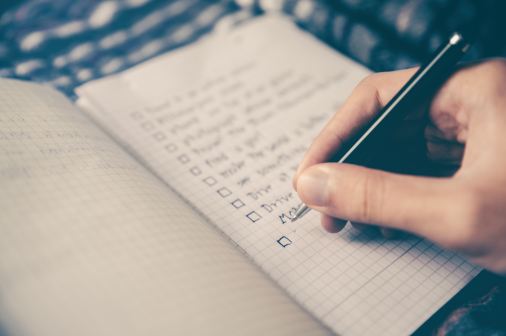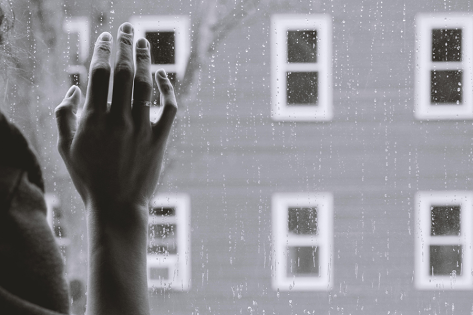Apologies for the post being so late this week but I have been struggling to find the motivation to write and also been unsure of what to write about. Since I know so many of you often feel the same I decided to just write about how I am feeling right now and the apathy that has entered my world. This year has been a particularly difficult year for me, from the onslaught of my episode in March nothing has quite come right yet and I am starting to forget what being me feels like. I seem to have moments of thinking everything is getting better and things are returning to normal only to lapse into melancholy or lose my motivation for anything a few days later.
I do not feel depressed, I do not feel manic, I do not feel much at all. The emotions are still there but muted, like a cellphone which is on vibrate instead of ringing. I get up every day, I go to work, I honour the commitments I have made to go to meetings or social engagements but I feel no spark. Instead, I feel exhausted, exhausted with the energy it takes to keep moving, to keep putting one foot in front of the other. I am ‘okay’, using the term to mean what a counsellor once told me. When I first went into the clinic, I and many others there, used the word ‘OK all the time. We had no idea how we really felt or were so used to lying that it was easier to just say we were okay or fine despite how we were really feeling. In one of the lectures a counsellor banned the word and explained that being okay is not enough, that in war when soldiers are dying on the battlefield, medics would run around trying to assist as many as they could. In order to make their jobs easier soldiers would say they were ‘OK’ if they were hurt but not in need of immediate help. (I don’t know if the story is true or not but I like the explanation and it gets the message across) I am okay, I am hurting but I am not dying yet. Do you feel like this sometimes? Do you know others who feel like this?
 For months I have been struggling with my sleep, since leaving the clinic in April actually. Some nights I get a mere hour or two of sleep, if I am lucky I manage to get up to four hours but not often. I feel absolutely exhausted. Everything exhausts me, talking to people, thinking, showing up, just being awake. I don’t know what to do though. Most medications do not work, I follow strict sleep hygiene practices that I learnt over the years. I lie awake for hours not even thinking. Sometimes my eyes burn I am so tired yet still I don’t fall asleep. I need to see my psychiatrist but therein lies another problem. Another frustration that as a person suffering from mental illness faces constantly. Even though I am on full medical aid which I pay a fortune for they will not cover the fees because according to their rules (and PMB) they only have to pay for 21 days in a psychiatric hospital OR 15 visits with your psychiatrist and nothing more. That’s it, regardless of if you are on a hospital plan or comprehensive cover. No amount of appeals and complaints will change this but that is another argument and possibly another post for another day. Bottom line is that I have already forked out a few grand to cover additional visits to my psychiatrist and have simply run out of money. In the end, I think to myself what will it really help anyway as there isn’t really any medication she can give me to help, I have already been on pretty much everything already. Sadly, I know many others who also struggle with insomnia and it is horrible.
For months I have been struggling with my sleep, since leaving the clinic in April actually. Some nights I get a mere hour or two of sleep, if I am lucky I manage to get up to four hours but not often. I feel absolutely exhausted. Everything exhausts me, talking to people, thinking, showing up, just being awake. I don’t know what to do though. Most medications do not work, I follow strict sleep hygiene practices that I learnt over the years. I lie awake for hours not even thinking. Sometimes my eyes burn I am so tired yet still I don’t fall asleep. I need to see my psychiatrist but therein lies another problem. Another frustration that as a person suffering from mental illness faces constantly. Even though I am on full medical aid which I pay a fortune for they will not cover the fees because according to their rules (and PMB) they only have to pay for 21 days in a psychiatric hospital OR 15 visits with your psychiatrist and nothing more. That’s it, regardless of if you are on a hospital plan or comprehensive cover. No amount of appeals and complaints will change this but that is another argument and possibly another post for another day. Bottom line is that I have already forked out a few grand to cover additional visits to my psychiatrist and have simply run out of money. In the end, I think to myself what will it really help anyway as there isn’t really any medication she can give me to help, I have already been on pretty much everything already. Sadly, I know many others who also struggle with insomnia and it is horrible.
Lastly is the apathy. My sponsor asked me yesterday if I had given up and I had to think carefully about the answer. When pulling apart my thoughts the answer is yes and no. I don’t feel hopeless, I haven’t given up but I do wonder what is the point. It seems easier to just not care and keep moving forward. I know from experience that these phases pass and better times come. I know in my heart that I have so much to live for, so much love and support around me but at the end of the day I am tired and the easiest way to keep going is to not think about it too much, to not care, to just be apathetic. There are good times and there are bad times, there are times when my mental illness gets the better of me and there are times when I can manage my life and live very contently. I just need to wait it out but waiting it out is hard when the times are not good and the longer the struggle continues the harder it becomes to wait it out and not give up. I am not suicidal, I do not seek death because I know that I enjoy life, I know that I have passions and interests to still follow but right now I am tired. I am exhausted. I am simply okay.
There are so many of us out there that feel this, that find conversations too much to handle at times and sit in silence instead. So many of us that face the paradox of wanting to give up but wanting to fight because we know it will pass. There are too many of us out there that hold on to the hurt, the melancholy, the exhaustion, the apathy because there is no magic wand to make it go away. Depression is not just feeling sad. Mania is not just having lots of energy. Anxiety is not just worrying. Pain is not just physical. Thoughts are not harmless. These things make living on a day to day basis exceptionally hard at times but there are warriors out there who press on, who keep putting one foot in front of the other, who do not give in to the easiness of giving up. Today I try to be one of those warriors and keep fighting for better days, I know they will come. So please, don’t be offended if I don’t respond to your messages or if I don’t make plans with you to go out and often don’t seem overjoyed to see you. It has nothing to do with you at all and everything to do with the fact that at the moment I am too tired, too apathetic and too busy focussing on simply getting through the day. If you don’t know me and are reading this but know someone who might be feeling the way I do I encourage you to take the same message to heart. They are not trying to avoid you they simply can’t at the moment. If you are feeling like I do, let people know you are ‘OK’ and that you need the space to simply live until things get better.
*Disclaimer* My words above do not encourage or give approval for anyone to not have a medical support team around them or not take medication. I continuously engage with my counsellor, GP and psychiatrist while we try to work through this together and I remain on all recommended medication.










